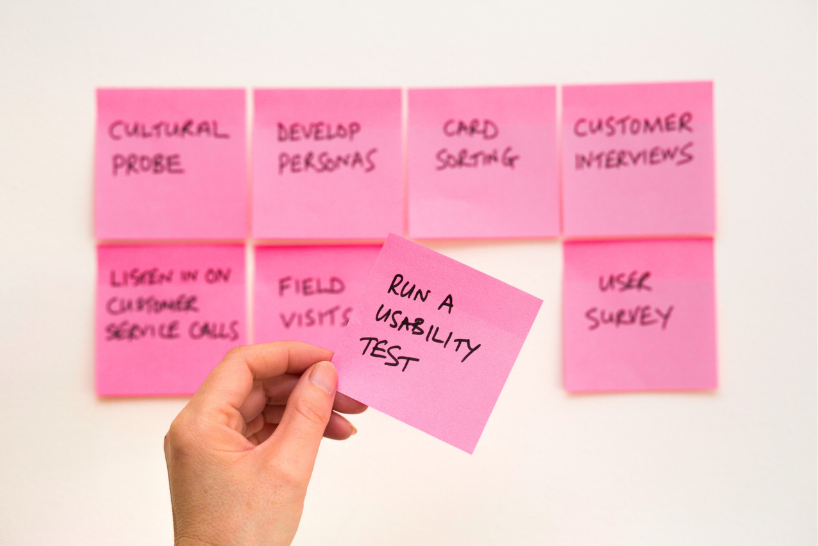A thorough brief is the secret ingredient of any successful web project. In the below guide, we discuss what a website brief is, who it benefits, why it’s important and the elements it must include to deliver outstanding results.
Note: This guide is for organisations who struggle to write briefs – although there’s plenty of helpful advice for digital agencies too.
What is a website brief?
It’s your timekeeper, teacher and trusted guide.
Or, in other words, it’s a comprehensive document created by a client that includes the core details of a project.
Who benefits from a website brief?
A good brief benefits everyone involved in the project.
- Clients use it to clarify what results they expect from a project (e.g. sell 25% more tickets by July) and identify their “must not-haves”.
- Digital agencies use it as a point of reference – it allows them to create an effective proposal for the work and outlines technical requirements.
- Important stakeholders can review the brief and give their input.
Top tip: The more effort you put into a brief, the better the proposals will be from agencies! Plus, the process will be quicker as agencies won’t have to come back with bucket loads of questions.
Why do you need a website brief?
The brief’s primary purpose is to make sure key requirements are identified, considered and questioned before work starts.
When done well, it becomes an invaluable project management tool. It gives everyone a clear understanding of the task at hand, ensures important details aren’t missed and ultimately leads to a cost-effective and high-quality solution.

Nine key sections a successful website brief must include
Writing a website brief doesn’t have to be a hideous, stomach-curdling process – in fact, all great briefs include the same core information.
Here are nine sections your website brief should include in order to be successful. We’ve raised key points and questions in each category for you to think about.
1. Detailed company profile
Start by introducing yourself (it’s only polite).
By providing a detailed company profile, you’re giving the digital agency a sense of who you are, what you value and how you like things done.
Here are some questions to answer:
- What does your business do? What products or services do you sell?
- What’s the size of your business? How many people do you employ?
- How long have you been around for?
- Are you an international company?
- What’s your niche or USP?
- Who are the key stakeholders?
- What are your core values?
- List some keywords that describe your company – are you fun, modern or educational?
- What are your plans for future growth?
Top tip: When thinking about your plans for future growth, ask yourself “what do I want to be famous for”. It helps agencies get to the heart of your business.
2. Project goals and objectives
Before starting a project, you need to know what it is and why you’re doing it.
Sure, it might be obvious to you – but it’s not to the digital agency responsible for creating your perfect website, system or app.
Plus, sharing your vision is a great opportunity to get everyone as excited as you are about this amazing new project.
So, what’s the motivation behind the project? And what measurable outcomes do you hope to see from the project’s completion?
Do you want to:
- Increase brand awareness?
- Increase website traffic?
- Generate more revenue?
- Encourage newsletter sign-ups?
- Improve your online presence?
- Get more people to read your blog?
From here, get even more specific.
For example, how do you want to generate more revenue? Do you want an online shop or a mobile-friendly website that’ll allow users to purchase products on the go?
How will you measure the project’s success? You might want to boost the average order amount by 20% in six months or halve the number of people who abandon their shopping cart by July.
By having clear goals, you allow the digital team to make informed decisions around development and design.

3. Target audience and personas
Who is your ideal user and what do they actually care about?
Understanding your audience is critical – you must spend the time (and money) researching it properly.
Identify their:
Demographic information
- Age
- Gender
- Income
- Occupation
- Location
Psychographic information
- Personality traits
- Concerns
- Desires
- Likes and dislikes
- Values
This information helps agencies design and build intelligently – they will create a website specifically for your users by anticipating their wants and needs.
4. The current website
Sometimes, we get super attached to not-so-wholesome things, like prosecco on Mondays, condensed milk in coffee and Ibiza club classics.
You might feel similarly about your current website. It can be painful saying goodbye – after all, it’s served a purpose, and you have plenty of wonderful memories.
However, this part of the brief is about cutting ties and explaining why your current website isn’t fit for purpose.
Ask yourself:
- What do you like and dislike about the current site?
- Are there any areas that work particularly well?
- What do you want to change and why?
- Are there any key functions that need to stay or be improved?
- How much traffic does your site receive?
- How many users view the website on mobile?
- How many enquiries, conversions and sales are you receiving?
- Have you got any user feedback you could share?
We promise it’s cathartic.

5. The new website
Now, think about your gorgeous, brand-spanking new website.
- What functionality will it have?
- What does it look like?
- How will it help your business grow?
Design specification
Have you got design guidelines? If so, hand ‘em over.
Give agencies as much information about your visual identity as possible, including any restrictions you have.
Do you have specific typography, a colour scheme or an image bank? And what emotions do you want to provoke in your users when they’re browsing the site? These are critical details that’ll influence the design’s final look and feel.
To give agencies a better idea of your tastes and preferences include examples of designs and links to websites you particularly like the look of or like to use. Make sure you explain why you like them too.
Content
A new website calls for new content – there’s no point regurgitating old stuff that doesn’t work.
Many clients tackle content too late, which causes long delays. So, while you don’t have to have the exact copy and images ready at this stage, you should have a rough idea of the following:
- Do you have the expertise and resources to carry out a content audit of your current site?
- Who’s responsible for creating new content? Do you need help creating it, or are you looking for help from the agency?
- Have you created a site map for the website? If you have, share it.
- Do you have copy guidelines?
Technical features and requirements
To allow the agency to give more accurate costs include as much information in this section as possible.
Questions include (but aren’t limited to):
- Do you need hosting, or do you already have it? If so, provide more details.
- Does the site require user logins? If so, how will they be managed? This one is important, so think about it carefully.
- What functions must the website have? What functions would it be nice to have? And what do you want to add in the future? Clearly describe the purpose of each function and ideas you may have for how they’ll work.
- Do you want your site to be available in different languages?
- Do you want to set up admin permissions?
- Is the website e-commerce? If so, what payment methods are required? Do you have payment gateways set up?
- Does the website integrate with external APIs or need any 3rd party integrations e.g. CRMs?
Support and maintenance
Consider how much ongoing support you’ll need once the project is completed and what types of support you might want from the agency.
For example, are you after general maintenance or do you want an agency to proactively work on the website, offering constant improvements and ideas to make it better?
It might not seem important now, but support is critical if you want your website to remain secure and functional.

6. Competitors
It’s true what they say – “keep your friends close, and your enemies closer.”
Make a list of your main competitors. What are they doing well? What are they doing not so well?
By providing this information, agencies can assess the competition and find gaps in the market that could be capitalised on.
7. Schedule
It’s essential to set a sensible schedule for your project that accounts for changes, reviews and potential obstacles.
As well as a final deadline, you should measure progress incrementally by setting project milestones and mention if there are any key dates for delivery e.g. does the website need to be ready for an event?
You should also give details for proposal deadlines, dates for interviews with the chosen agencies (and how many) and a date for when a final decision will be made.
8. Budget
Some businesses are hesitant to discuss budgets during the brief stage.
However, being open about how much you can spend results in more accurate quotes. Plus, you’ll get an idea of the type of solution agencies can realistically provide.
If you don’t have a specific budget, give a ballpark figure or scale e.g. £75k to £100k

9. Selection process
It takes a lot of time for digital agencies to understand a brief and create a proposal (you can read more about that process in our Creative Director’s amazing LinkedIn article).
So, it’s much appreciated and incredibly courteous if you can provide evaluation criteria for the selection process.
Top tip: An amazing brief is clear about what it wants to see in proposals e.g. company background, approach to the project, reference details
When agencies know exactly what you’re after, they won’t waste time barking up the wrong tree.
Conclusion
If you include the information above in your brief, you’re more likely to receive amazing, life-changing and in-depth proposals from agencies.
And if you can’t answer all the questions yet? Don’t worry – the agency you choose to work with will contribute by giving suggestions and recommendations for how you can best achieve your goals.

Related articles
Digital
Bespoke vs off-the-shelf: What’s best for your business?
Digital
Five vital elements your landing page should have
Digital
Five benefits of using small digital agencies